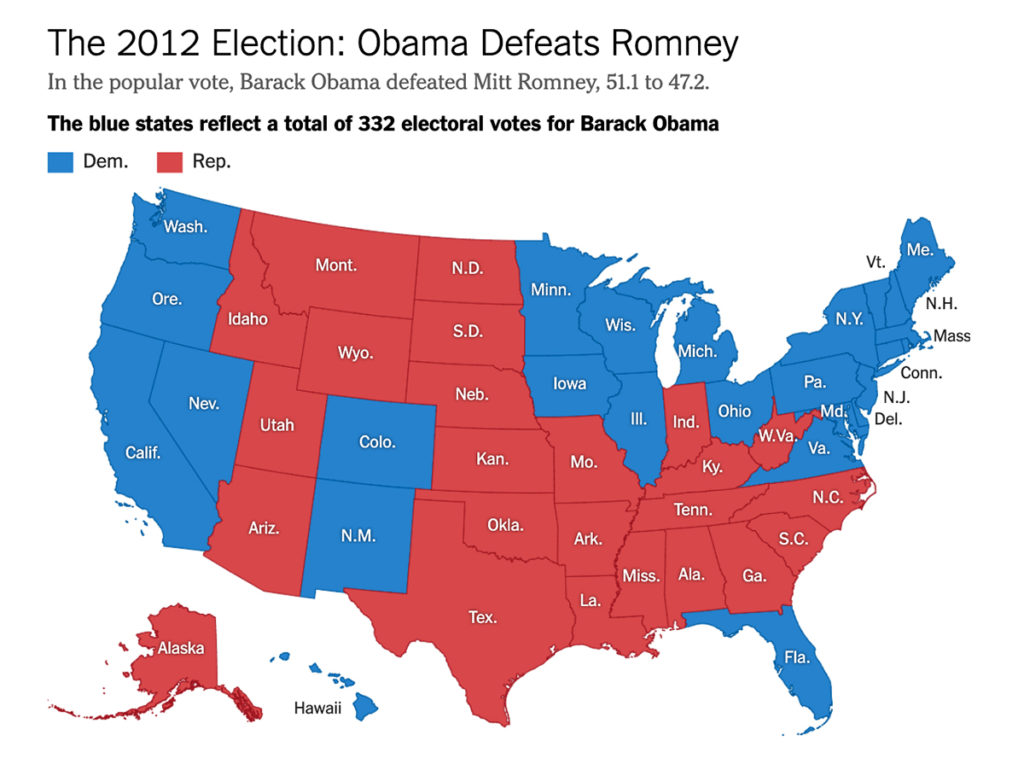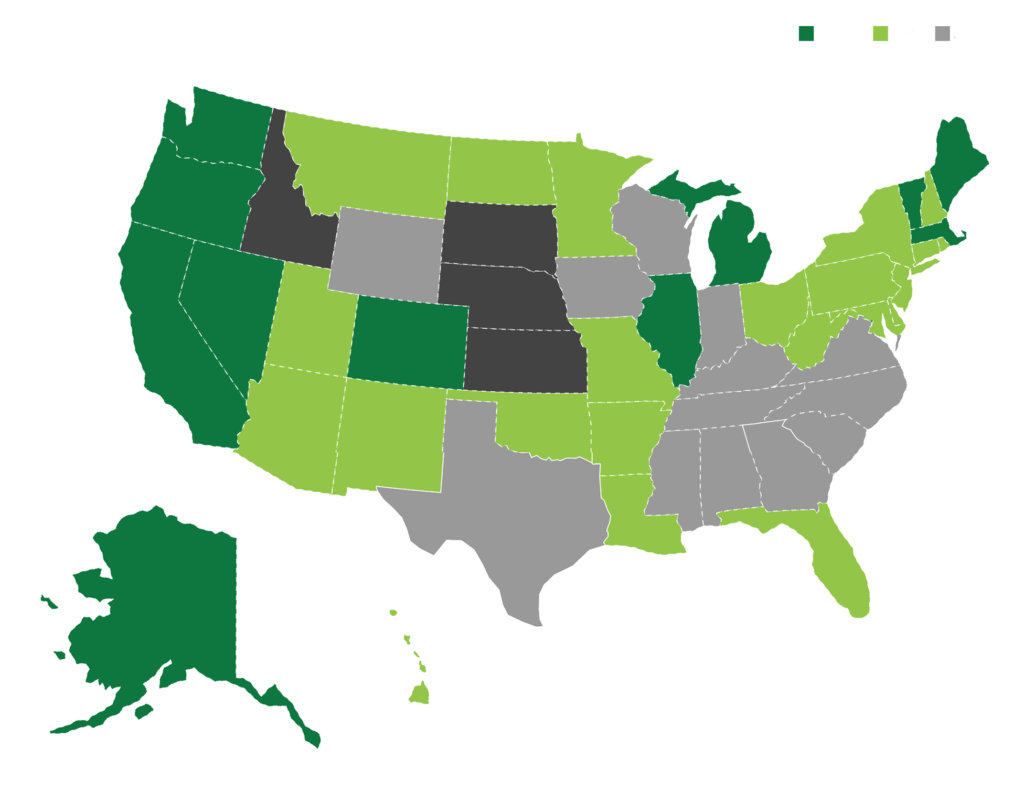Legalization Is No Longer Politically Divided
Until recently, cannabis legalization was considered a “political issue”, with stark opinions dividing the party lines. But as public opinion changes, so have political views.
As recently as the 1990s, two-thirds of the country opposed legalizing marijuana. Fast forward to 2019, when a Pew Research Center study stated that two-thirds of Americans support marijuana legalization for medical or recreational purposes.
Simply put, most voters (across parties) support some type of cannabis reform.
In the lead-up to the general election, politicians appear to be responding.
Where Do Traditional “Red” & “Blue” States Stand On Marijuana Legalization



State marijuana laws are changing rapidly, and not always in the ways we’d expect. For example, many traditional republican states now have a medical marijuana program.
These states, which all voted Republican in the last three general elections, have medical marijuana programs:

Contrary, the following states voted Democratic in the last three general elections and do not have any type of cannabis program:

The country has changed. Public perception has changed.
Cannabis is moving forward.
The landscape in the U.S clearly demonstrates this:
- Cannabis is illegal in only 4 of 50 states.
- Cannabis is fully legal in 8 states
- Most of the country has some type of cannabis program
More change might be on the horizon, in fact it is inevitable. As of this writing, 7 states have marijuana laws up for vote on November’s ballot. Such as:
- Arizona
- Montana
- Mississippi
- Nebraska
- New Jersey
- Oregon
- South Dakota
Federal Support: The MORE Act
Political candidates across both parties have verbally endorsed pro-cannabis policies. However, with no cannabis bills introduced in recent years, we’ve relied solely on their statements to determine a candidate’s view on cannabis issues and policies.
All of this will soon be tested.
In August, legislatures introduced a historic federal legalization bill, the Marijuana Opportunity Reinvestment and Expungement (MORE) Act that would decriminalize cannabis nationwide. As stated:
“Specifically, it removes marijuana from the list of scheduled substances
under the Controlled Substances Act and eliminates criminal penalties for an individual
who manufactures, distributes, or possesses marijuana.”
Additionally, the MORE Act would:
- Impose a 5% tax on cannabis products
- Make Small Business Administration loans and services available to entities that are cannabis-related legitimate businesses or service providers
- Establish a process to expunge convictions and conduct sentencing review hearings related to Federal cannabis offenses
Politicians will vote on the bill in September, two months before many of them are up for re-election. Meaning, before the public turns out to vote in the general election the MORE Act will finally confirm where their elected officials stand on cannabis issues.
Will This Forward Momentum Hold?
Cannabis reform continues to be a focal point for the general public, so much so that candidates are wondering if pro-cannabis voters will determine the results of the upcoming general election. In response, candidates in both “red” and “blue” states are speaking up.
Meanwhile, the cannabis industry continues to expand, bolstering the economy and creating jobs.
With the introduction of the MORE Act and the addition of new state legalization bills on November’s ballot, it appears that the laws governing the industry might finally be catching up. Time will tell.





